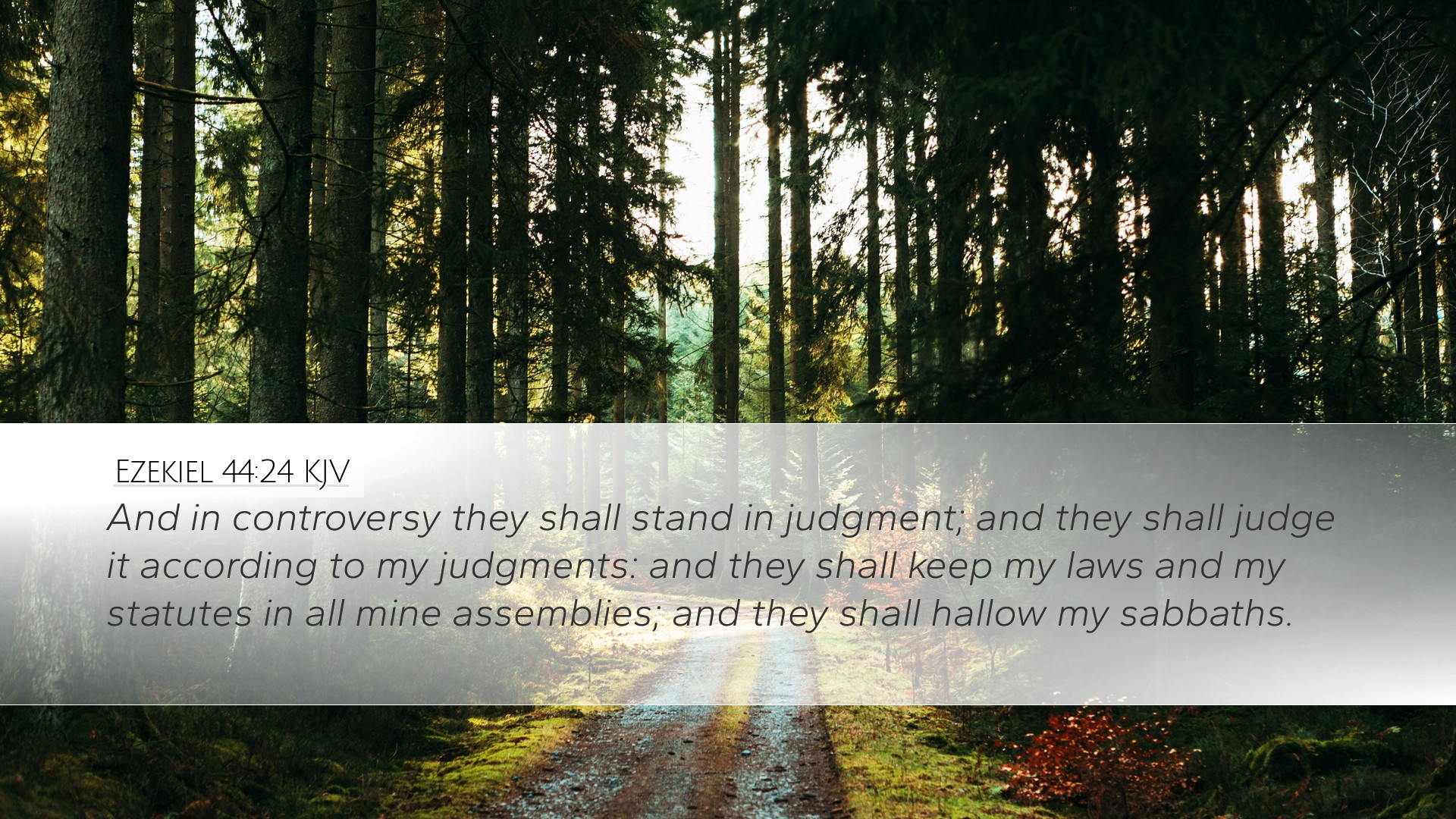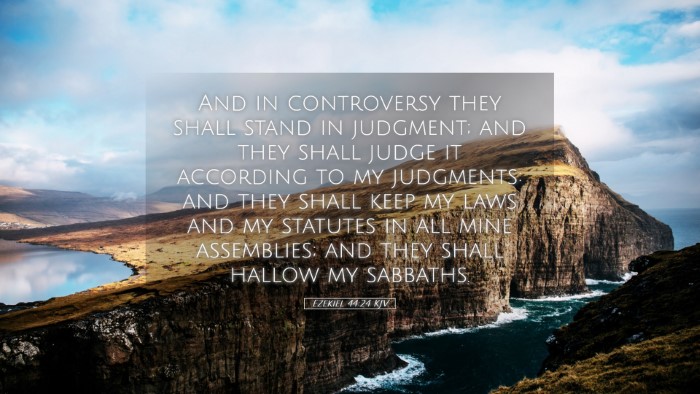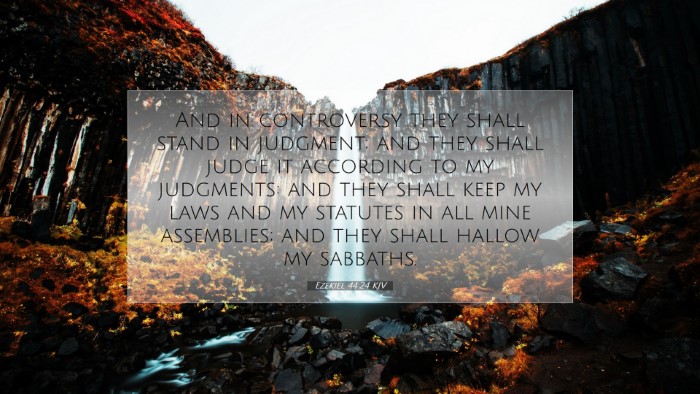Ezekiel 44:24 Commentary
Verse: "And in controversy they shall stand in judgment; and they shall judge it according to my judgments: and they shall keep my laws and my statutes in all mine assemblies; and they shall hallow my sabbaths." (Ezekiel 44:24)
Contextual Background
The book of Ezekiel, a prophetic work attributed to the priest and prophet Ezekiel, addresses the spiritual condition of Israel during and after the Babylonian exile. Ezekiel speaks against the backdrop of a defiled temple and corrupt practices that had led to God's judgment. Chapter 44 introduces the restored worship practices in the future temple, highlighting the roles and responsibilities of the priests.
The Role of Priests in Judgments
This verse underscores the role of the priests as judges in controversies among the people. Their judgments are to be based on God's laws and statutes, affirming that the priesthood's authority derives not from personal wisdom or societal norms but from divine revelation.
- Moral Authority: The priests are tasked with maintaining God’s standards, which implies a moral authority that transcends human legalism.
- Divine Guidance: They are not left to their devices; they must judge based on God's written Word, revealing the importance of scripture in discernment.
- Community Integrity: The involvement of priests in community controversies highlights the integral role of faith leaders in societal ethics.
Interpretations from Commentators
Matthew Henry
According to Matthew Henry, this verse emphasizes that in ecclesiastical matters, priests should play a mediating role, reminding the community of God's covenant. He points out that their judgments must be in accordance with the divine will, reinforcing the idea that God desires order and righteousness within His people.
Henry notes that “they shall judge it according to my judgments” reflects a faithful adherence to God’s laws, showcasing the priest's responsibility to convey God’s truth to the people.
Albert Barnes
Albert Barnes expounds on the necessity of the priests acting as judges, elucidating that their authority in spiritual matters affirms the importance of a community that looks to divine standards for resolution. He interprets this as a restoration of proper worship practices and moral order in society. Barnes highlights that their role extends beyond mere ritual; it incorporates the administration of justice among the people, emphasizing the intertwining of worship and ethical conduct.
Adam Clarke
Adam Clarke offers insights on the implications of “they shall hallow my sabbaths.” He connects this to the broader theme of sanctity within worship, where the observance of the Sabbath is not only a matter of personal piety but also communal integrity and remembrance of God's covenant. Clarke asserts that the priesthood is called to maintain holy times and spaces, thereby fostering a culture of reverence and devotion among the people.
The Theological Significance
This passage is rich with implications for theology, specifically regarding the understanding of authority and ethics in the community of faith. The requirement for the priests to adhere to divine judgment reinforces the belief that morality is grounded in God’s character and directives.
- Authority of Scripture: The passage emphasizes the centrality of scripture within the lives of community leaders.
- Holistic Worship: The integration of justice with worship reveals a holistic view of faith that is active in both the personal and communal spheres.
- Call to Faithfulness: The call for priests and leaders to exemplify God's laws serves as a reminder for church leaders today to be grounded in biblical principles.
Application for Pastors and Theologians
For contemporary pastors and theologians, Ezekiel 44:24 serves as a poignant reminder of the responsibilities that come with spiritual authority. Leaders are called to be equipped with knowledge of scripture to offer guidance and resolution in matters of conflict within their congregations.
Moreover, the importance of establishing practices that honor God’s commandments is paramount. Just as the priests were responsible for teaching and enforcing God’s laws, modern-day leaders are similarly tasked with upholding biblical truth in their ministries.
Conclusion
Ezekiel 44:24 is a profound exhortation for believers to respect and uphold God’s legal and moral framework within both personal and community life. The insights from esteemed commentators such as Matthew Henry, Albert Barnes, and Adam Clarke offer depth and clarity for understanding the weight of this passage, urging pastors, students, and theologians to reflect on their roles within the community of faith in light of divine judgment and holy living.


